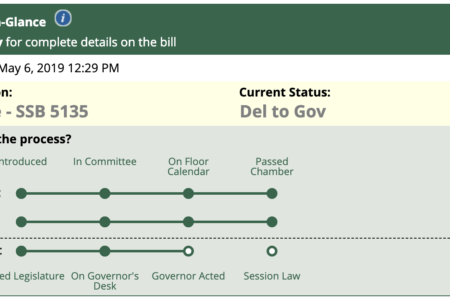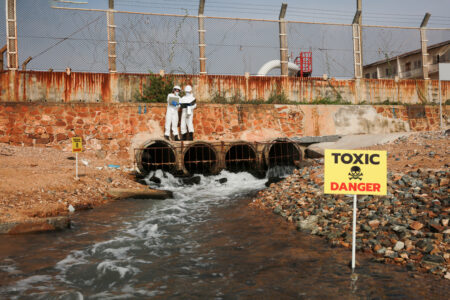
Share On Social!
Last month, Washington (12.7% Latino) state lawmakers approved far-reaching chemical legislation, which will regulate toxic substances in consumer products.
The bill, which is awaiting signature from Governor Jay Inslee, aims to implement harmful chemical identification, restriction, and prohibition efforts.
Toxic-free advocates are describing the law as one of the most substantial pieces of regulatory legislation in the country.
“Washington state’s legislature has taken bold action to protect public health and the environment from the dangers of toxic chemicals,” said Liz Hitchcock, leader of Safer Chemicals Healthy Families, in a press release. “Other states and the federal government should follow their lead.”
What Does the Bill Entail?
The Pollution Prevention for Our Future Act (SB 5135) gives new authorities to the state’s Department of Ecology (DOE) that will go to take definitive steps in reducing citizen’s chemical exposure through the products on shelves. 
“[DOE will] determine regulatory actions to increase transparency and to reduce the use of priority chemicals in priority consumer products,” the bill states.
If the bill is approved, DOE will be able to:
- Require companies to provide all ingredient information and their potential harms
- Restrict or prohibit unsafe substances when safer alternatives exist
- Identify chemicals that are unsafe to specific demographics or sensitive individuals
However, the department is charged with only regulating priority products, those that have significant use. Some manufactured goods, such as foods, beverages, motor vehicles, and drugs, are exempted from this legislation.
Why Was There a Need for Legislation?
Pollution Prevention for Our Future initially aims to focus on five classes, or groupings, of chemicals: phthalates, PFAS, toxic flame retardants, APEs, and PCBs.
These substances can cause harm to people through cleaning products, drinking water, furniture, and other environmental, industrial exposures.
“The use of chemicals of concern in products is still far too common, posing serious long-term risk to human health and the environment,” said Cheri Peele of Clean Production Action in a press release. “The Pollution Prevention for Our Future Act will help move the market toward safer chemicals in products, which reduces business liability.”
Latinos, who experience these exposures frequently, are one of the groups most impacted by environmental-exposure regulation.
Why Should Other States Care?
Toxic chemical exposure from the environment and consumer products are impacting people from all socio-economic and geographic backgrounds — especially those in the Latino community. 
Actively confronting these issues will lead to holistically-healthier people.
Overlooking the constantly-growing problems surrounding toxic exposure can lead to health crises, wide-spread misinformation, and surmounting costs to address the problems caused by harmful chemicals.
For example, the U.S. government is currently grappling with water-contamination on military bases throughout the country — a problem they’ve known about for years and will cost millions of dollars to fix.
Proactive measures like the Pollution Prevention for Our Future Act will allow regulations that can diminish future exposures to cause harm, and permit officials to focus on the current problems caused by past neglect.
“This huge win keeps Washington state at the forefront of the nation, stopping the use of harmful chemicals in products that pollute our homes, bodies, and waters,” said Laurie Valeriano, executive director of Toxic-Free Future. “The Washington State Legislature stood up to tremendous pressure from the chemical industry and moved forward with bold action that tackles toxic pollution.”
Editor’s Note: This article is part of a collaboration between Salud America! and the Hoffman Toxicant-Induced Loss of Tolerance (TILT) program at UT Health- San Antonio. To find out if you are TILTed due to exposure to everyday foods, chemicals, or drugs, take a self-assessment or learn more about TILT.
Explore More:
Chemical & Toxic ExposureBy The Numbers
1
Quick Survey
Can help you find out how chemically sensitive you are



